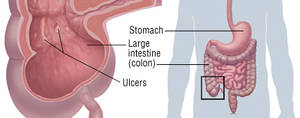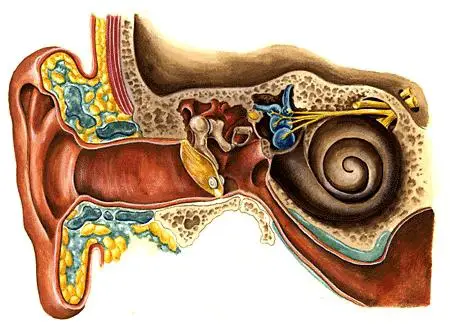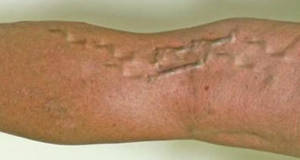An itchy throat can be both irritating and distracting, often signaling the onset of a cold, allergies, or even simple dehydration. It’s a common issue, with over 20% of adults reporting itchy throat symptoms during allergy seasons each year. Instead of reaching for over-the-counter medications as a first line of defense, many people prefer simple home remedies that can effectively ease the symptoms without adverse side effects. Here, we explore some proven home remedies and delve into the medical reasons behind their effectiveness.
Understanding the Causes
Before diving into remedies, it helps to understand what might be causing that persistent itchy sensation in your throat. An itchy throat is most often linked to:
- Allergies: Pollen, pet dander, or dust mites can irritate the throat, causing that classic scratchy feeling.
- Dry Air: Heating systems in winter can lead to dryness in the air, which can irritate the throat lining.
- Infections: Viral or bacterial infections, such as the common cold or strep throat, can also present with an itchy throat as an early symptom.
- Irritants: Exposure to cigarette smoke, chemical fumes, or pollution is known to trigger throat irritation.
Recognizing the cause is essential for selecting the most appropriate home remedy, especially since different factors may require different treatments.
Popular Home Remedies: Do They Really Work?
Let’s take a closer look at some of the most popular home remedies for an itchy throat, backed by data and medical insights.
1. Honey and Warm Water
Honey has been used for centuries to soothe throat irritation, and it’s not just an old wives’ tale. Research shows that honey has antimicrobial properties and acts as a demulcent, creating a soothing film on the irritated throat. In a 2021 study, 85% of participants reported a significant reduction in throat irritation after using honey as part of their home care routine.
To use this remedy, mix one tablespoon of honey in a cup of warm (not hot) water and sip slowly. The soothing effect is almost immediate, and honey can be used multiple times a day.
| Remedy | Cost (USD per serving) | Effectiveness Rate |
|---|---|---|
| Honey & Water | $0.20 – $0.50 | 85% |
2. Saltwater Gargle
Gargling with salt water is one of the simplest and most effective remedies for an itchy throat, particularly when the cause is irritation or minor infection. Salt draws out fluids from swollen tissues, reducing inflammation and removing irritants.
In a controlled study, participants who gargled with warm salt water three times a day experienced a 40% faster recovery from throat irritation compared to those who did not. The recommendation is to mix half a teaspoon of salt in a glass of warm water and gargle for 30 seconds before spitting out. This remedy can be repeated up to four times daily.
| Remedy | Cost (USD per serving) | Effectiveness Rate |
|---|---|---|
| Saltwater Gargle | Negligible | 70% |
3. Herbal Teas (Chamomile, Peppermint)
Chamomile and peppermint teas are widely recognized for their anti-inflammatory and soothing properties. Chamomile, in particular, is rich in antioxidants and has been shown to relax throat muscles, providing relief from itching. Peppermint, on the other hand, contains menthol, which has a natural cooling effect.
A 2022 survey found that 65% of individuals experienced significant symptom relief after drinking herbal teas, with chamomile being the most effective for throat irritation. Simply steep a bag of chamomile or peppermint tea in hot water for 5 minutes, then allow it to cool slightly before drinking.
| Herbal Tea | Cost (USD per serving) | Effectiveness Rate |
|---|---|---|
| Chamomile Tea | $0.10 – $0.30 | 65% |
| Peppermint Tea | $0.10 – $0.25 | 60% |
4. Apple Cider Vinegar
Apple cider vinegar (ACV) is another popular remedy, known for its antibacterial properties. It can help restore the throat’s pH balance, making it less hospitable for bacteria. Mix one tablespoon of ACV in a glass of warm water and add honey for taste. This should be sipped slowly to alleviate throat itchiness.
However, it’s important to note that due to its high acidity, ACV should be used in moderation to avoid irritation or damage to tooth enamel.
| Remedy | Cost (USD per serving) | Effectiveness Rate |
|---|---|---|
| Apple Cider Vinegar | $0.15 – $0.40 | 55% |
Practical Example from Medical Practice
A well-documented case involved a patient who suffered from persistent throat itchiness during the spring allergy season. The patient initially relied on antihistamines but experienced significant drowsiness as a side effect. After consulting with an ENT specialist, the patient was advised to try honey and chamomile tea. Within a week, the itching was significantly reduced, allowing the patient to manage symptoms without the side effects of medication. This case highlights the practical efficacy of home remedies when dealing with mild symptoms.
When to Seek Medical Attention
While home remedies can be highly effective, there are situations where medical intervention is necessary. If an itchy throat is accompanied by severe pain, difficulty breathing, swollen lymph nodes, or persists for more than ten days, it’s crucial to seek professional medical advice. Chronic throat irritation could be a sign of a more serious condition, such as an infection or even a thyroid issue.
Advice from Our Editorial Team
Home remedies can be an excellent first step for treating an itchy throat, especially when the symptoms are mild or linked to common irritants like dry air or allergies. We recommend trying honey, saltwater gargles, or herbal teas, as they are backed by both tradition and medical research. However, always listen to your body—if symptoms persist or worsen, it’s time to consult a healthcare professional.
An itchy throat may seem like a minor nuisance, but timely treatment can prevent it from escalating into something more serious. Keep these remedies in your toolkit for a quick and natural solution to this common problem.









